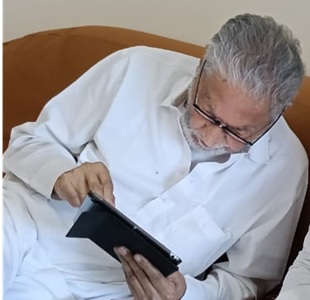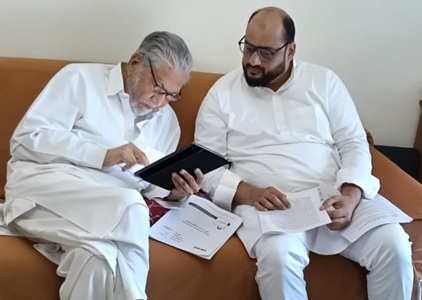Truth and Justice are among the cornerstone of Islamic worldview, Prophet (SAW) declares, “Beware, I inform you regarding the greatest of the mortal sins: Associating anything with Allah, disobeying parents and lying!” another hadith to declare lie as the mother of all evil “All the evils have been locked in a room and its key is lying”. When you get any information, confirm it before passing it to another person, these are the most important things to be considered before discussing Islamic journalism.
The central force in the Islamic moral system is the concept of Tawhid – the supremacy and sovereignty of one God. Tawhid also implies unity, coherence, and harmony between all parts of the universe. A journalist who uses their faculty of observation, reason consciousness, reflection, insight, understanding and wisdom must realize that these are the trust of God and must not be used to injure a human soul for the sake of self-promotion, rather these are to be used in search of truth.
In the modern era, the influence of Islamic heritage has received little scholarly attention, with a few exceptions like Islamic Banking which has attracted international attention. The exploration for what one could call “Islamic journalism” is partially fell through the choice, which has most likely resulted from the domination of western journalism training as well as practice. Both the Quran and Sunnah encourage using sense and rationality as a basic means to protect us from distortion, inaccuracy and evil doing. Islamic Journalism can be based on below four basic principles of journalism as recognized by Islamic worldview.
1. Always telling the truth: The first principle is the concept of truth, Quran clearly instructs: “And do not mix the truth with falsehood or conceal the truth while you know [it]” (2:42). News must be based on truth free from falsehood. The principle is essential, as indicated in the Quran: “O you who have believed, if there comes to you a disobedient one with information, investigate, lest you harm a people out of ignorance and become, over what you have done, regretful.” (49:6). News must carry a strong sense of responsibility and accountability on the part of journalists and their organizations.
2. Spreading the truth: The second principle is based on the role of journalists as public communicators, which broadly means to spread truth and good deeds to the public. In this context, journalists are expected to play the role of an educator, promoting a positive attitude to the mass audience and encourages them to do good deeds. Enjoining what is right and forbidding what is wrong, obliges people to invite towards positive and forbid any evil which they see being committed.
3. Best for the public interest: The third principle is based on seeking the best for the public. The idea behind this is best illustrated by one of Prophet Muhammad’s (SAW) sayings: “Whosoever of you sees an evil action, he must change it with his hand. If he is not able to do so, then with his tongue. If he is not able to do so then with his heart and this is the weakest of faith” (Muslim; Hadith 34). It calls for a profound meditation attitude and a participatory approach. Journalists are not seen as detached spectators, they are expected to involve themselves in public discourse and to take a stance in order to promote social change in society. Journalists should act as “agent of change” who contributes to the betterment of the society.
4. The principle of Moderation: The fourth principle is called moderation, a concept emphasized in both the Quran and Sunnah. Moderation in this context implies impartiality and fairness; journalists must not endorse a particular political cause or support one side of the conflict. The core meaning of moderation is justice. This approach encompasses straightness, straightforwardness, impartiality, fairness, equitableness, probity, honesty, uprightness, equitable composition or just composition.
In addition, journalists are expected to be smart and think critically, their job is to influence public opinion, these roles need to be exercised carefully for the sake of prosperity of the society rather than simply reporting the news.
The responsibility of a Muslim mass media system would be: ‘to destroy myths. In our contemporary world, these myths may include power, progress, science, development, modernization, democracy, achievement and success. Personalities, as they represent these, must not be superhumanized and super defined.
Throughout Islamic history, many institutions, as well as channels of mass communications such as Masjid, azan, and Friday sermon, have used the concept of social responsibility to mobilize public opinion and persuade individuals to work for the collective good of society, towards a positive contribution to the community, towards justice and truth, approaching moderation.






0 Comments